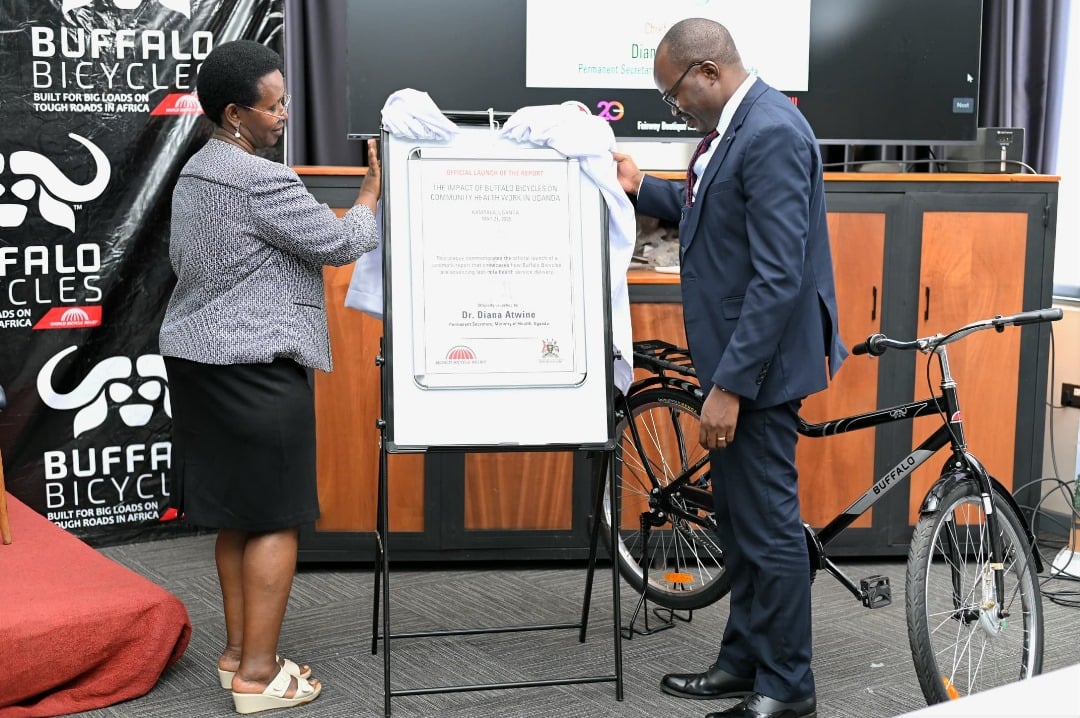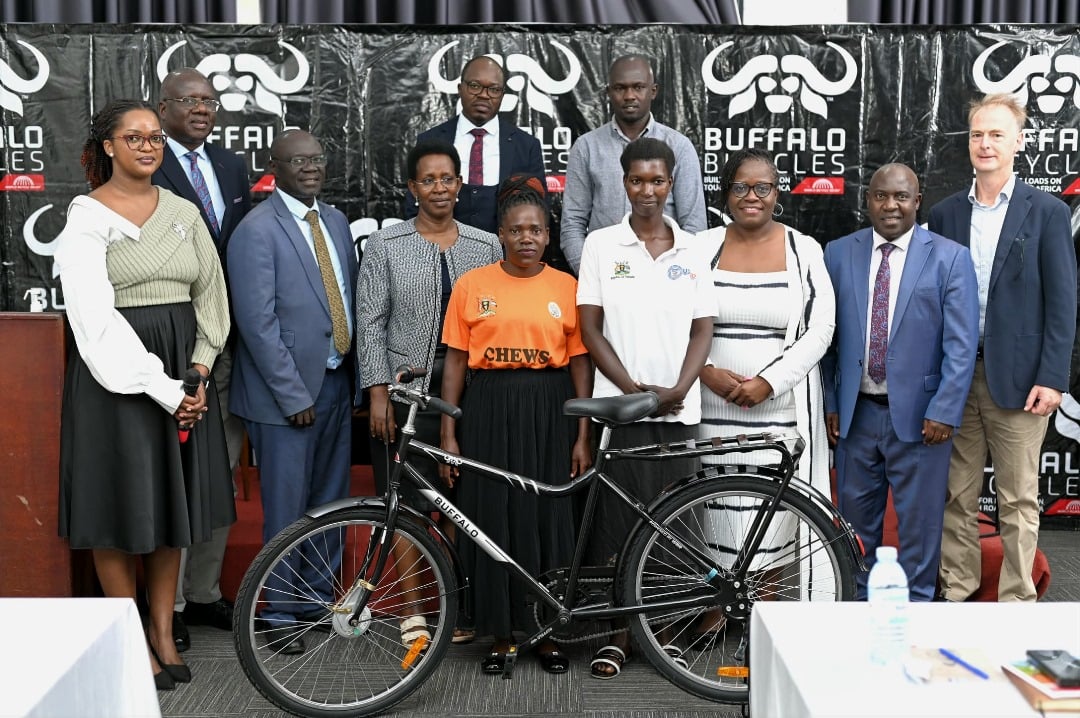The Permanent Secretary in the Ministry of Health, Dr Diana Atwine, has called for wider distribution of bicycles to Community Health Extension Workers (CHEWs), saying improved mobility is essential for delivering quality healthcare to Uganda’s hard-to-reach communities.
Speaking at the launch of a report titled Accelerating Health Access: How Buffalo Bicycles Empower CHEWs in Uganda on Wednesday, Atwine said the evidence was now clear that giving bicycles to health workers significantly boosts both service reach and health outcomes.
“Community health workers could save up to two million lives annually,” she said.
“That’s a critical role in equalising healthcare access and pushing us toward universal health coverage.”
She added: “When governments and donors prioritise investment in these frontline health workers, we are guided by the conviction that this will help us realise our health goals faster. More bicycles mean more people served.”
Atwine noted that since the Ministry launched the bicycle initiative a year ago, CHEWs had shown renewed motivation and greater capacity to work across wider areas.
“We’ve seen real enthusiasm from health workers—now that they have a reliable means of transport, they’re reaching communities more consistently. It’s already translating into improved public health indicators and reduced disease burdens,” she said.
The report, commissioned by World Bicycle Relief, assessed the outcomes of providing 331 CHEWs with specially designed Buffalo Bicycles in Lira and Mayuge districts.

According to the findings, the bicycles more than doubled the average number of households reached weekly, with a 108% increase recorded.
Travel time to health facilities also fell by nearly half—47%—enabling workers to offer more timely services.
Additionally, 71% of CHEWs reported using their bicycles to transport sick patients, often referring to them as “village ambulances.”
The distances health workers were willing and able to travel also grew by 68%, opening up access to remote communities that had previously been neglected due to mobility constraints.
“These results reinforce what we’ve long believed: mobility isn’t a luxury—it’s a lifeline,” said Dave Neiswander, CEO of World Bicycle Relief.
“With these bicycles, community health workers can reach more people, respond faster, and deliver better care. This is what last-mile health equity truly looks like.”
The study, conducted in September 2024—one year after the distribution of bicycles—drew on quantitative surveys, focus group discussions, and interviews with health workers, supervisors, and residents.
World Bicycle Relief, in partnership with the Ministry of Health, hopes the findings will galvanise further donor support and scale-up of the programme in other underserved districts across Uganda.


